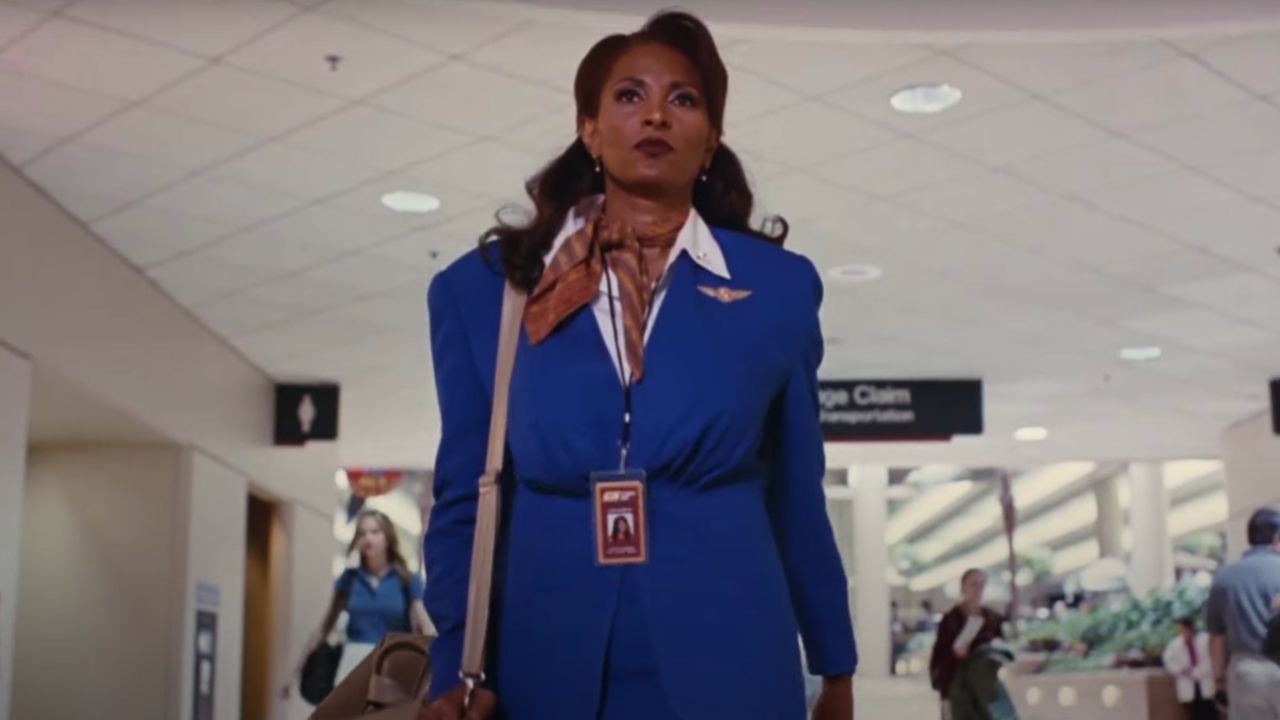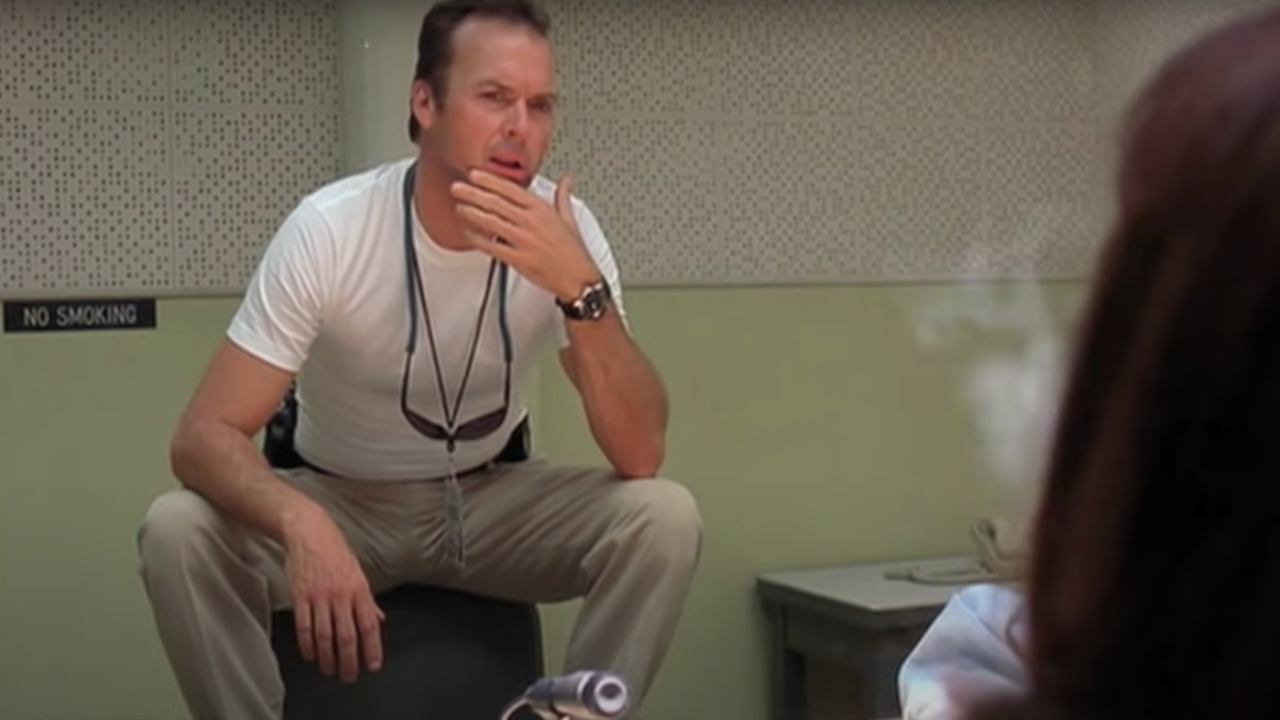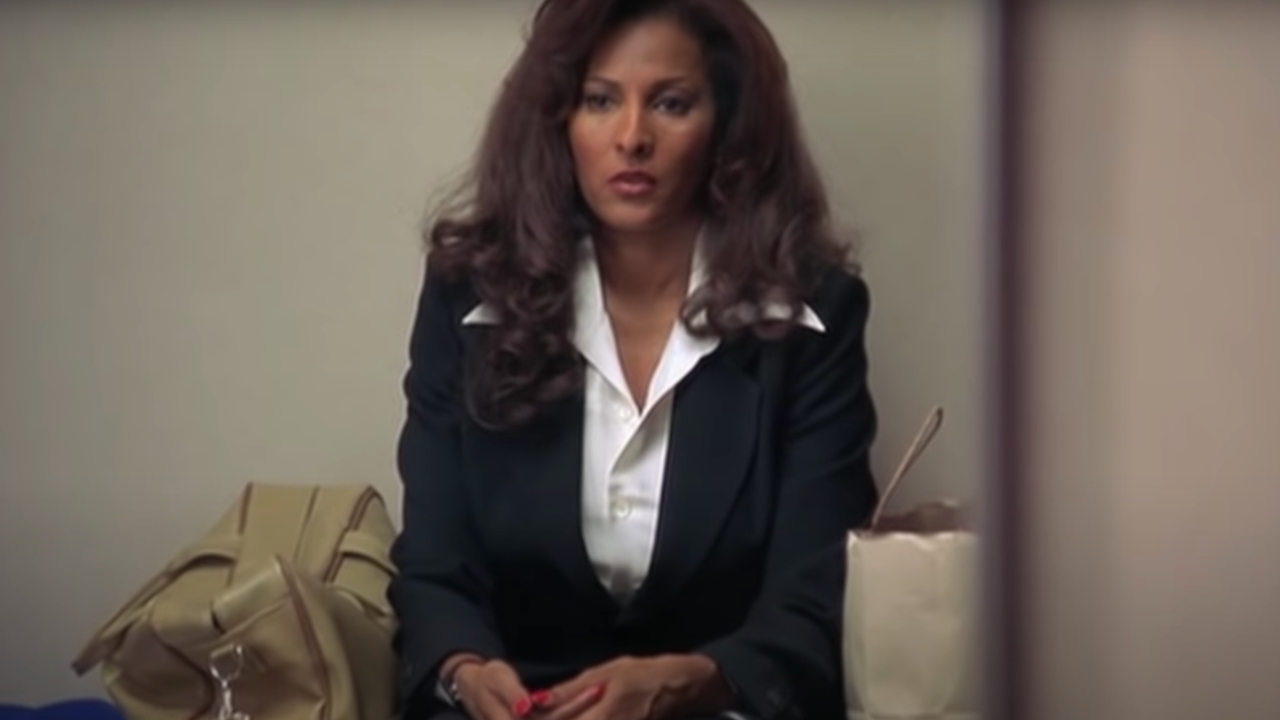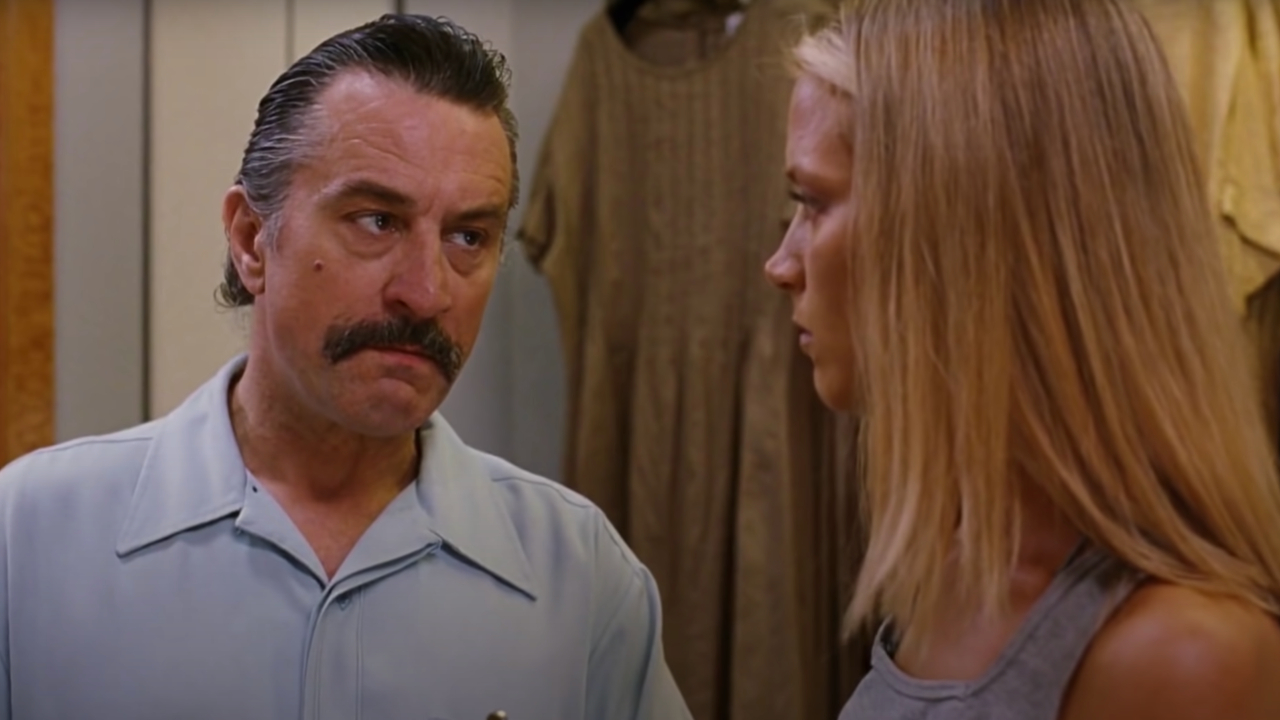
Jackie Brown, the third film in Tarantino’s filmography, is probably his most underappreciated gem.
To put it simply, among all of his films, we ranked this one higher than movies such as Reservoir Dogs, Django Unchained, and The Hateful Eight (although I, being a hardcore fan of The Hateful Eight, might not place it above that). However, when discussing Tarantino’s movies with others, Jackie Brown is often overlooked. You may find that they don’t initially mention it in the conversation. But once you bring it up, they’ll usually respond enthusiastically, acknowledging it as a fantastic film.
Despite being released following Quentin Tarantino’s acclaimed film, “Pulp Fiction,” “Jackie Brown” didn’t receive the recognition it deserved. This is surprising given that the movie is excellent and distinct from its predecessor. I’d like to explain why it should have stood out more.

First Off, It’s The Only Tarantino Film Based Off Of Somebody Else’s Story
Surprisingly enough, I’ve penned pieces on every single Tarantino movie, including the less frequently talked about “Death Proof.” And let me tell you, none of them compare to the unique experience that “Jackie Brown” offers in the realm of a Tarantino film.
The unique style of this work sets it apart from anyone else’s. From its distinctive characters, captivating plot, and unparalleled pacing, it seems to be a world apart compared to his other films, particularly the action-packed “Kill Bill,” which was released afterwards.
In the early 2000s, when I initially watched Jackie , I didn’t grasp why it seemed distinct. It wasn’t until much later that I discovered it was adapted from Elmore Leonard’s novel Rum Punch. This author is also known for other captivating tales such as Out of Sight and Three-Ten to Yuma. Once I realized this, everything fell into place because the film simply flows in a unique manner.
The narrative of a flight attendant, who secretly transports money and unknowingly becomes entangled in a sting operation to take down her superior, Jackie, moves at a more leisurely pace compared to other films by this director. However, instead of being slow, it’s more about immersing ourselves in the characters and their relationships. Some might label it as “slow,” but I believe that description doesn’t do justice to its deliberate pacing that sets a distinctive tone, making it a standout piece within Quentin Tarantino’s extraordinary body of work.

It Tips Its Hat Toward Blaxploitation Films
Tarantino shares my fondness for blaxploitation films, and it’s interesting to note that during Pam Grier’s audition for “Jackie Brown,” as the story goes (as detailed on the “Jackie Brown: How It Went Down” DVD special), Tarantino had posters of some of her movies displayed in his room. Upon questioning if he did so because she was coming, he admitted that he was planning to take them down because he didn’t want her to realize just how big a fanboy he was.
In essence, Django Unchained, a film I found incredibly rewarding as a Black man, carries the core spirit of blaxploitation cinema. Its director’s affection for this sub-genre is evident. Yet, Jackie doesn’t embody the true nature of blaxploitation films. Instead, it acknowledges and pays tribute to them without actually being one.
In the book, instead of being Brown, the main character is Jackie Burke who happens to be white. Tarantino drew inspiration from Grier’s movies such as ‘Coffy’ and ‘Foxy Brown’, even incorporating some music from ‘Coffy’ to create that 70’s atmosphere.
Despite not being a typical blaxploitation film, its essence strongly resonates with this sub-genre, giving it a distinctive flavor.

Jackie Brown Herself Is Probably Tarantino’s Most Unsung Protagonist
Many people often associate strong female characters with The Bride, or Beatrix Kiddo from the Kill Bill films (it’s worth mentioning that some might find volume 2 superior to volume 1). However, I would contend that the character Jackie is significantly tougher.
In the opening scenes of this gripping film, I found myself on the edge of my seat as the protagonist, a fearless woman, confronts her formidable gun-running overlord, pulling a weapon on him in a daring move that left me breathless. Later, she orchestrates a clever betrayal, double-crossing the law enforcement agents who were attempting to ensnare her boss, all with the ultimate goal of pocketing half a million dollars from his ill-gotten gains.
Speaking of incredible, if something as cool as that doesn’t take the cake, I don’t know what does! I adore Beatrix, and I have a soft spot for martial arts films, but what makes Kill Bill truly stand out is its focus on our protagonist being strong-willed and driven to avenge herself. Despite her fear, she courageously presses forward, propelled by her determination to triumph.
She’s an ordinary individual, yet one who recognizes her predicament, and chooses to betray those capable of ending her life. This trait sets her apart among Tarantino’s leading characters, making her unique in some way.

Unlike His Other Films, Jackie Brown Really Takes Its Time
As a cinephile, I’ve got to say that Jackie, unlike Quentin Tarantino’s typical style, doesn’t follow the rhythm I’m accustomed to in his other works. Yet, this seeming deviation has managed to cultivate a dedicated following among fans of his oeuvre, as well as attracting even those who are not typically drawn to his films.
Although some folks might label this film as “dull,” I find the term “somewhat lethargic” used by the critical consensus on Rotten Tomatoes more fitting. This is because the slow pace seems intentional. For instance, when Louis (Robert De Niro) appears to be merely watching TV, it’s not aimless. It’s a strategic move that adds impact when he ultimately shoots Melanie (Bridget Fonda) in the parking lot, making the moment shockingly intense.
Essentially, I’m saying that the slow progression in the film is intended to make you feel relaxed, almost sleepy. This is so when a significant event occurs, it’s like a sudden exclamation mark, catching you off guard. In this way, the movie aims to disarm you, and it succeeds in doing so!
Additionally, the film maintains Tarantino’s distinctive style, ensuring the dialogue remains captivating, albeit with a high frequency of racial slurs. In this regard, it might be intriguing to see him create films based on other people’s stories, such as the R-rated Star Trek project that seems unlikely to materialize. Maybe for his yet-to-be-determined last film?

In The End, It’s One Of Tarantino’s Best Films That People Rarely Talk About
To put it simply, one reason I adore the film “Jackie Brown” is its exceptional quality, yet it’s often overlooked. This gives it a sense of being an under-appreciated gem, despite being released as far back as 1997.
In simpler terms, after “Kill Bill” was released, I believe Quentin Tarantino started creating films that are undeniably characterized as Tarantino-esque. By this, I mean movies that openly showcase his admiration for various genres like martial arts, spaghetti westerns, action war films, and more.
Perhaps it’s due to Roger Avary’s contributions to “Reservoir Dogs” and “Pulp Fiction,” and the fact that “Jackie” is adapted from an Elmore Leonard book, which gives the impression that it concludes a trilogy of sorts, leading up to Quentin Tarantino’s more distinct Tarantino-style films.
The experience is subtly captivating, patient, and immersive. I adore all his movies, yet I yearn for the director’s earlier style before he began creating films such as “Kill Bill,” “Inglourious Basterds,” and “Once Upon a Time…in Hollywood.” To reiterate, “Jackie Brown” doesn’t resemble any other Tarantino production, and as an ardent fan, I say that in the most complimentary way possible.
Read More
- Mobile Legends: Bang Bang (MLBB) Sora Guide: Best Build, Emblem and Gameplay Tips
- Brawl Stars December 2025 Brawl Talk: Two New Brawlers, Buffie, Vault, New Skins, Game Modes, and more
- Clash Royale Best Boss Bandit Champion decks
- Best Hero Card Decks in Clash Royale
- Call of Duty Mobile: DMZ Recon Guide: Overview, How to Play, Progression, and more
- Clash Royale December 2025: Events, Challenges, Tournaments, and Rewards
- Best Arena 9 Decks in Clast Royale
- Clash Royale Best Arena 14 Decks
- Clash Royale Witch Evolution best decks guide
- Brawl Stars December 2025 Brawl Talk: Two New Brawlers, Buffie, Vault, New Skins, Game Modes, and more
2025-08-05 12:09